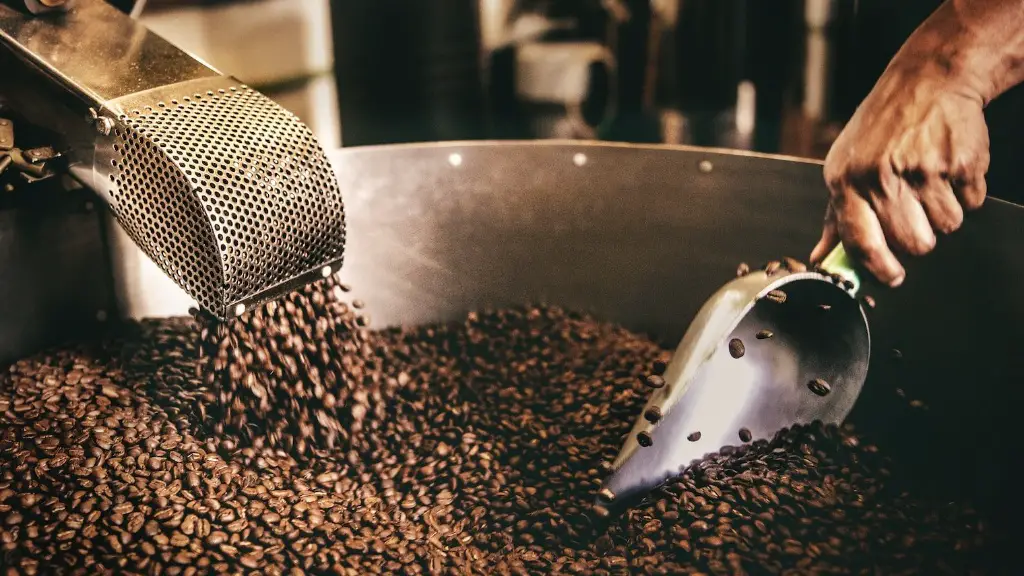Coffee is one of the most widely consumed beverages in the world, and its consumption has numerous health benefits. But, what happens when we have undergone a medical procedure like angioplasty? Can we still drink coffee? How does it impact on the angioplasty side effects (if any)?
Angioplasty is a medical procedure that improves blood flow to the heart by using a tiny balloon to stretch and open narrowed or blocked coronary (heart) arteries. After recovery from angioplasty, a patient needs to follow a strict diet in order to reduce the risk of future health issues. Before making any changes in the diet, patients should consult their healthcare provider. If a patient wishes to consume coffee as part of their dietary habits, then it is important to know how it can affect them.
According to experts, consuming coffee after angioplasty is generally safe. After the recovery period, patients can have a few cups of coffee per day, but they should consult with their doctors before doing so. Coffee can have both positive and negative effects on the angioplasty effects. For instance, studies have shown that drinking coffee can help lower the risk of stroke and protect against certain types of cancer. However, too much caffeine can increase heart rate and cause hypertension. Therefore, it is important to be mindful of the amount of coffee consumed.
Additionally, moderate coffee drinking can cause an increase in cholesterol levels and thus contribute to the hardening or narrowing of arteries — the same condition that may have led to angioplasty. Therefore, it is important to monitor the cholesterol levels from time to time. Furthermore, it is essential to avoid adding cream, sugar or any other sweeteners to coffee, as these may trigger weight gain. This, in turn, can lead to an increased risk of heart attack and stroke.
In conclusion, one should remember that the effects of consuming coffee after angioplasty are dependent on the individual and their medical history. Therefore, it is best to consult a doctor before drinking coffee.
Coffee Intake and Angina
Angina is chest pain caused by reduced blood flow to the heart muscles. It is often a symptom of coronary artery disease (CAD), and coffee consumption may exacerbate the condition. Studies have shown that drinking two or more cups of coffee a day can increase the chance of developing angina. Moreover, the caffeine in coffee can increase both the risk and frequency of angina. Therefore, it is important to understand how coffee affects the heart and to make sound decisions about coffee consumption.
Additionally, caffeine can induce stress and anxiety, which can be detrimental to heart health. To avoid this, it is important to stick to decaf coffee over regular coffee. Decaffeinated coffee is a good choice for those with heart problems as it retains most of the antioxidants found in regular coffee. Moreover, it is important to remember that caffeine can be found in other beverages and foods, such as energy drinks, tea, and chocolate.
It is also essential to understand that other factors such as smoking, alcohol consumption, and diet can contribute to worsening angina symptoms. Therefore, it is important to reduce other lifestyle risks and maintain a healthy lifestyle. Furthermore, it is important to pay close attention to chest pain or any other symptoms which may be caused by the intake of caffeine. If any unusual symptoms occur, it is best to consult a doctor.
Coffee Consumption in Cardiovascular Patients
Coffee consumption may also have an effect on cardiovascular patients. Studies have shown that drinking coffee can increase the risk of a heart attack in those with a history of hypertension, heart disease, or diabetes. Moreover, coffee can increase blood pressure and heart rate, which can be dangerous for those with cardiovascular problems. It is recommended to reduce coffee consumption in these cases or consult a doctor before any changes are made.
Moreover, coffee consumption can reduce the effects of certain medications such as beta-blockers. Beta-blockers are used to treat high blood pressure, heart failure, and angina. Coffee can reduce the absorption of the medication and thus weaken its effects. Therefore, it is important to talk to a doctor about the effects of coffee if a patient is taking beta-blockers or any other medication for heart-related problems.
Additionally, the effects of coffee on cardiovascular patients may vary depending on the individual. Certain individuals are more sensitive to the effects of caffeine. For instance, individuals who are prone to arrhythmias may experience an increased risk if they consume coffee. Moreover, the effects of coffee on individuals younger than age 30 and over age 50 may also differ.
Coffee and Blood Sugar
Coffee can also impact blood sugar levels in those with diabetes. Studies have shown that coffee can have a positive effect on blood sugar levels in those with type 2 diabetes. Coffee can increase insulin sensitivity and reduce the risk of developing type 2 diabetes. Furthermore, several studies have also shown that regular coffee consumption can reduce the risk of cardiovascular diseases in type 2 diabetics.
However, the effects of coffee on blood sugar levels may vary depending on the type of coffee. For instance, decaffeinated coffee has been shown to reduce fasting glucose and post-meal glucose levels. On the other hand, regular coffee has been shown to increase post-meal glucose levels. Furthermore, it is important to remember that adding sugar or other sweeteners, such as syrup and honey, may increase the risk of type 2 diabetes.
Coffee can also affect individuals who have pre-diabetes. Studies have shown that consuming coffee can help prevent pre-diabetes from developing into type 2 diabetes. Moreover, it is important to note that the effects of coffee on blood sugar levels are largely dependent on the individual and can vary from person to person.
Conclusion
To conclude, it is important to remember that coffee can have both positive and negative effects on the body after angioplasty. Therefore, it is essential to consult a doctor before making any changes to dietary habits. Additionally, it is important to pay attention to chest pain or any other symptoms which may be caused by the intake of caffeine. If any unusual symptoms occur, it is best to consult a doctor. Finally, moderate coffee consumption can be beneficial for those with pre-diabetes and type 2 diabetes.



